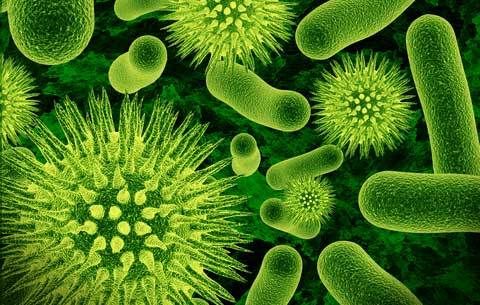Living with genital herpes means navigating the discomfort and emotional impact of periodic outbreaks. While conventional antiviral medications are the cornerstone of management, many individuals seek complementary and alternative strategies to alleviate symptoms, shorten outbreak duration, and potentially reduce recurrence. This guide explores a range of herbal and simple Genital herpes natural treatment that can offer relief for genital herpes.
It is crucial to understand that these natural approaches are supportive therapies, not cures. The herpes simplex virus (HSV) remains in the body indefinitely. Always consult your healthcare provider before trying new remedies, especially if you are pregnant, breastfeeding, on other medications, or have underlying health conditions.
The Power of Nature: Herbal Allies
Herbal remedies have been used for centuries to address various ailments, and some show promise in managing herpes symptoms by supporting the immune system, possessing antiviral properties, and promoting healing.
- Lemon Balm (Melissa officinalis): The Soothing Antiviral
- How it helps: Perhaps the most widely recognized herb for herpes, lemon balm contains antiviral compounds (like rosmarinic acid) that may inhibit the virus from entering cells and replicating. It’s also known for its calming and anti-inflammatory effects.
- Application: Primarily used topically. Look for creams, ointments, or make a strong tea infusion to use as a compress directly on lesions. Some find oral use beneficial for general well-being and stress reduction (a common trigger).
- Licorice Root (Glycyrrhiza glabra): The Viral Interferer
- How it helps: Licorice contains glycyrrhizin, a compound with well-documented antiviral and anti-inflammatory properties. It’s thought to interfere with the virus’s ability to replicate and may reduce the inflammation associated with outbreaks.
- Application: Can be taken orally as an extract, tea, or capsule. Topical preparations are also available.
- Important Caution: Oral licorice root, especially in high doses or long-term, can cause side effects like elevated blood pressure and potassium imbalance. Use with caution and under professional guidance, particularly if you have hypertension or heart conditions.
- Echinacea (Echinacea purpurea, E. angustifolia): The Immune Booster
- How it helps: While not directly antiviral against HSV, Echinacea is a well-known immune stimulant. It helps bolster the body’s overall immune response, making it more resilient against viral reactivation.
- Application: Commonly taken orally as tinctures, capsules, or teas. Often used during periods of immune vulnerability or at the earliest sign of an impending outbreak.
- Olive Leaf Extract (Olea europaea): Broad-Spectrum Defender
- How it helps: Olive leaf contains oleuropein, a compound with broad-spectrum antimicrobial and antiviral properties. It may interfere with the viral life cycle and stimulate immune responses.
- Application: Typically taken orally as a capsule or liquid extract.
- Tea Tree Oil (Melaleuca alternifolia): The Antiseptic Dryer
- How it helps: This essential oil possesses strong antiseptic and antiviral qualities. When properly diluted, it can help dry out lesions, reduce inflammation, and prevent secondary bacterial infections.
- Application: Crucial: ALWAYS dilute tea tree oil with a carrier oil (e.g., coconut, jojoba, or olive oil) before applying it to the skin, especially to sensitive areas. A patch test on a small, inconspicuous area is recommended first. Never apply undiluted.
Simple & Effective Home-Based Remedies
Beyond specific herbs, several accessible home remedies can provide immediate relief and support the healing process during an outbreak.
- Cold Compresses/Ice Packs:
- How it helps: Applying cold can numb the area, reduce pain, and decrease swelling and inflammation.
- Application: Wrap ice cubes or an ice pack in a clean cloth and apply directly to the affected area for 10-15 minutes at a time, several times a day.
- Baking Soda Paste:
- How it helps: Baking soda can help dry out lesions and reduce itching.
- Application: Mix a small amount of baking soda with water to create a paste. Apply directly to the sores and let it dry.
- Cornstarch:
- How it helps: Similar to baking soda, cornstarch can help keep the area dry and reduce friction, which can aggravate sores.
- Application: Dust a small amount of cornstarch directly onto the lesions.
- Aloe Vera Gel:
- How it helps: Known for its soothing, anti-inflammatory, and wound-healing properties, aloe vera can reduce irritation and promote faster recovery.
- Application: Apply pure aloe vera gel directly from the plant or a reputable product to the sores several times a day.
- Epsom Salt Baths:
- How it helps: Soaking in a warm bath with Epsom salts can provide overall comfort, reduce pain, and promote relaxation, which can indirectly aid in healing by reducing stress.
- Application: Add 1-2 cups of Epsom salts to a warm bath and soak for 15-20 minutes. Avoid overly hot water, which can irritate sores.
- Loose, Breathable Clothing:
- How it helps: Tight clothing can chafe and irritate sores, prolonging healing. Cotton underwear and loose-fitting garments allow air circulation, keeping the area dry and reducing friction.
- Application: Choose breathable fabrics and avoid restrictive clothing during an outbreak.
- Hygiene and Air Exposure:
- How it helps: Keeping the affected area clean and dry is crucial to prevent secondary bacterial infections and promote healing.
- Application: Gently wash sores with mild soap and water, then pat (don’t rub) dry. Whenever possible, expose the area to air for short periods to help it dry out.
Holistic Lifestyle Support: The Foundation of Relief
The most effective approach to managing genital herpes integrates these natural remedies with a healthy lifestyle.
- Stress Management: Stress is a major trigger for outbreaks. Practice relaxation techniques like meditation, deep breathing, yoga, or spend time in nature.
- Adequate Sleep: A well-rested body has a stronger immune system. Aim for 7-9 hours of quality sleep each night.
- Nutrient-Rich Diet: Support your immune system with a diet rich in whole foods, fruits, vegetables, and lean proteins. Consider the role of L-lysine (found in meat, fish, dairy) and zinc.
- Hydration: Drink plenty of water to support overall bodily functions and healing.
- Identify Triggers: Keep a log to identify personal triggers for your outbreaks, such as certain foods, stress, illness, or hormonal changes.
While herbal and home-based treatments can offer significant relief and support, they are part of a larger management strategy. Always maintain open communication with your healthcare provider to ensure your treatment plan is safe, effective, and tailored to your individual needs.






